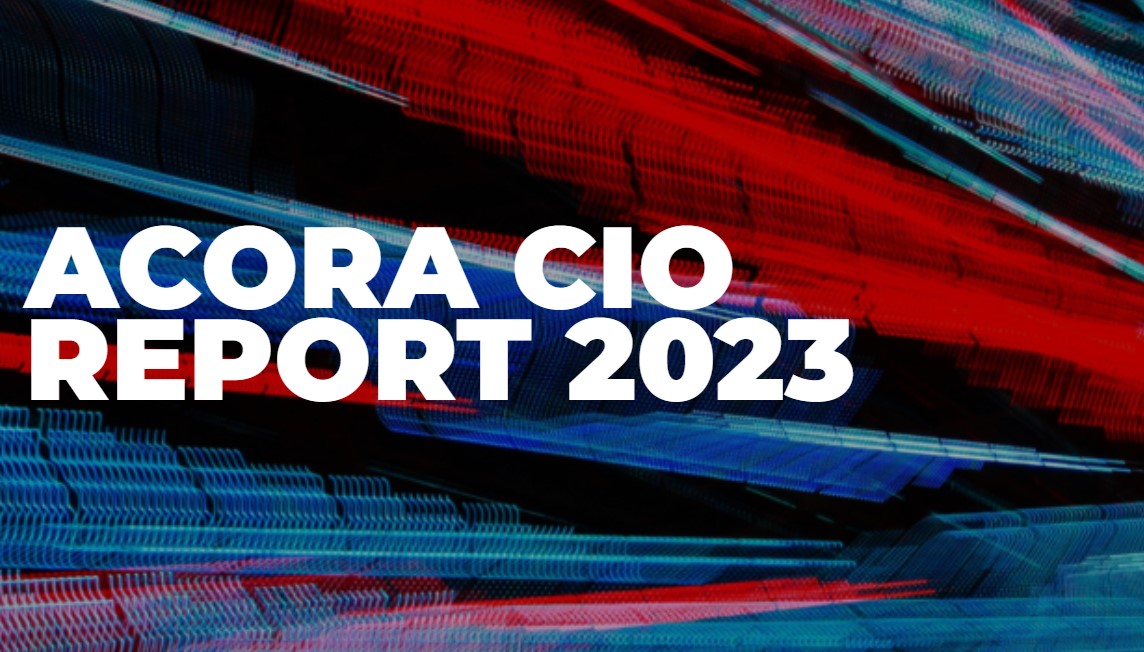Acora, a UK-based IT managed service provider, recently conducted a survey to gain insights into the changing roles and responsibilities of Chief Information Officers (CIOs) in mid-market companies. The research aimed to understand the challenges and modifications that resulted from the transition to a hybrid work model in the aftermath of the COVID-19 pandemic. The study included 126 decision-makers from UK-based financial services companies.
According to the survey findings, 65% of IT leaders believe that hybrid working has elevated their role within their respective organizations. In addition, 61% of respondents reported taking on additional responsibilities, such as direct involvement in due diligence activities. This highlights the evolving nature of the CIO role and the increasing importance placed on their expertise.
Cybersecurity emerged as the top focus area for CIOs, with 67% of respondents listing it as their main priority. This finding underscores the continued significance of cybersecurity in protecting organizations from potential threats. Previous reports have often referred to cybersecurity as the “big, scary cybersecurity monster,” highlighting the ongoing challenges that organizations face in this area.
The survey also examined IT budgets and the use of Managed Service Providers (MSPs) among IT leaders. While 55% of respondents predicted an increase in their budgets in the coming year, this figure represents a significant drop from last year’s prediction of 77%. This decrease in budget expectations may be due to the economic uncertainty caused by the pandemic.
The use of MSPs is on the rise, with 92% of respondents planning to work with them this year. However, there are concerns about the ability of MSPs to support companies’ growth strategies, with 48% expressing apprehension. This indicates the need for organizations to carefully evaluate and select trusted partners who can effectively meet their business needs and future growth plans.
The survey also explored the management of cybersecurity operations within organizations. The findings revealed diverse patterns emerging in this area. Approximately 50% of respondents noted that Cybersecurity Operations and IT operations are managed together as a single in-house department. In contrast, 32% reported that cybersecurity operations function as a separate, standalone department within their organization. Meanwhile, 10% have chosen to outsource cybersecurity and IT operations to a third-party provider, while 8% have outsourced cybersecurity operations separately.
For organizations considering outsourcing their cybersecurity operations, there are two significant challenges to overcome. First, they need to find a trusted partner with the right capabilities and reputation that aligns with their current business needs and future growth plans. Second, they must navigate the complexities of managing multiple third-party providers. Finding a single partner who can address both IT and cybersecurity operations could provide these organizations with the same benefits as those who manage these functions in-house.
In terms of focus areas for cybersecurity, the survey highlighted the increasing sophistication of cyber threats. Attackers are using targeted methods to inflict reputational and operational damage on organizations. While technology tools are helpful in mitigating these threats, the complexity of the cybersecurity landscape necessitates skilled professionals. However, many organizations find it impractical or unaffordable to maintain an in-house team with the required expertise, leading them to seek assistance from external experts.
The survey also touched on the unfolding narrative surrounding artificial intelligence (AI) and its implications for IT leaders. IT leaders are now expected to guide organizations on the potential opportunities and challenges associated with AI. Lee Ganly, Chief Information Officer, stated that AI brings challenges related to intellectual property, security, and policy issues. It remains challenging to predict where AI will fit within the broader IT landscape in the future.
Overall, Acora’s survey provides valuable insights into the evolving role of CIOs and the increasing focus on cybersecurity in mid-market companies in the UK. It highlights the need for organizations to leverage external expertise, such as MSPs, to address complex cybersecurity threats and navigate the uncertainties surrounding emerging technologies like AI. As organizations continue to adapt to the hybrid work model, CIOs will play a crucial role in ensuring the cybersecurity and IT operations necessary for sustained success.


